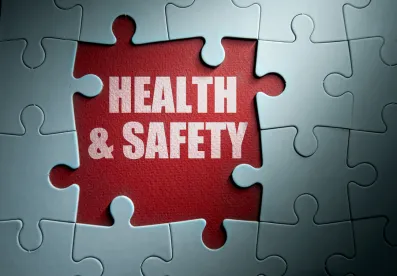On Oct. 14, 2020, the Michigan Occupational Safety and Health Administration (MIOSHA), the agency charged with enforcing workplace safety regulations at Michigan workplaces, adopted an emergency safety and health rule to control, prevent, and mitigate the spread of COVID-19 in workplaces (Emergency Rules).
Michigan joins Virginia as the only states that have implemented COVID-19 emergency workplace standards. In the next few weeks, Oregon is poised to become the third state to enact such a standard. Other states have opted to publish comprehensive regulations regarding COVID-19 worker safety protections while others have relied on executive orders (like New Jersey) from governors to mitigate the spread of COVID-19 in the workplace. To date, the federal Occupational Safety and Health Administration (OSHA) has not created a workplace safety standard specifically related to addressing COVID-19 in the workplace, instead opting to issue numerous nonmandatory workplace safety and health guidance regarding COVID-19.
Michigan’s Emergency Rules will remain in effect for six months and can be extended for an additional six months.
The Emergency Rules require employers in Michigan to, among other things:
Rate potential exposure of job tasks based on the following categories: lower, medium, high, and very high exposure risk.
High and very high exposure risk are jobs related to the healthcare profession and those who work in morgues and laboratories.
The Emergency Rules also require Michigan employers to implement a number of surveillance measures and workplace controls. Some of these requirements are likely new to employers but others are familiar to many employers and employees: Prohibit employees who are sick from coming to work or work in isolation and to provide hand washing and sanitizing supplies to employees. Employees with a known or suspected case of COVID-19 may not be permitted to return until they are no longer infectious pursuant to CDC guidelines and they are released from any quarantine or isolation order by the local public health department.
The Emergency Rules require employers to provide employees training on COVID-19 that covers at least (1) workplace infection-control practices; (2) the proper use of personal protective equipment; (3) steps employees must take to notify the business or operation of any symptoms of COVID-19 or a suspected or confirmed diagnosis of COVID-19; and (4) how to report unsafe working conditions. Employees must keep a record of employee training, its screening protocols, and notifications to the local health department regarding employees, customers, or visitors in the workplace who have a known case of COVID-19. Finally, the Emergency Rules, unlike Virginia’s COVID-19 emergency standard, include specific requirements for worksites in 11 different industries, including construction, manufacturing, restaurants and bars, meat and poultry processing, and casinos. Employers should consult the Emergency Rules for these specific requirements. Though some employers in Michigan may already be implementing some of the Emergency Rules’ requirements and controls, employers should carefully review the Emergency Rules to ensure they are fully compliant. Michigan employers that fail to comply with the Emergency Rules are subject to fines up to $7,000 for serious violations and $70,000 for willful violations. * Greenberg Traurig is not licensed to practice law in Michigan and does not advise on Michigan law. Specific Michigan law questions and Michigan legal compliance issues will be referred to lawyers licensed to practice law in Michigan.
|




 />i
/>i

